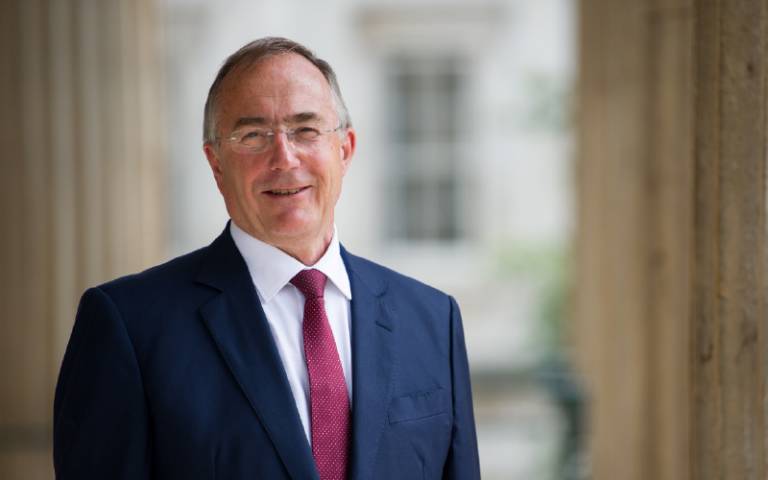Tackling sexual misconduct in universities isn't optional – it's essential
23 July 2020
“Tackling sexual misconduct in universities isn't optional – it's essential. As a university leader, I’ve come to understand how widespread sexual misconduct on campus is – and why change is urgent” writes (UCL President & Provost Professor Michael Arthur).

Last year, members of my senior management team were asked to publicly describe our most recent consensual sexual experience. All around the room, jaws dropped, eyes darted to the floor and we shifted uncomfortably in our seats.
The hypothetical question was posed during a Rape Crisis South London workshop and was deeply humbling. While we, as university leaders, felt deep discomfort at the prospect of sharing our recent consensual sexual experiences with our colleagues, we could not begin to understand how traumatic or excruciating it would be to recount non-consensual experiences such as sexual harassment and assault.
As academics, we are trained to focus on data and processes. But for too long there has been a wilful ignorance across UK universities that low reporting rates means that we do not have a problem. Low reporting doesn’t mean there are little or no experiences of harassment or misconduct in our institutions – it just means there are barriers to reporting it.
At University College London (UCL), we are aware that unacceptable behaviour exists within our learning, working and living environments, and we are on a journey to change this. Last year we launched Report + Support, which provides a mechanism for students and staff to anonymously report sexual misconduct, bullying and harassment.
This tool is accompanied by UCL’s first institution-wide campaign, Full Stop, which focuses on how all members of the university community can play an active role in shaping a welcoming and inclusive environment for students and staff. The campaign provides resources and includes calls to action at an individual, departmental and institutional level. Part of this requires that we no longer excuse poor behaviour or minimise the experiences of those affected.
We have also made some progress in establishing new policies, such as banning romantic and sexual relationships between lecturers and their students to protect against potential abuses of power and conflicts of interest. And we have increased support and training for students, and developed environmental investigations. This means we will step in and investigate if we suspect there is a problem area without requiring individuals to come forward.
As part of our commitment to be transparent around this agenda, we will soon be publishing our first annual report on sexual misconduct, bullying and harassment. It makes for difficult reading. Not only are the figures concerning, but we must remind ourselves these are not just statistics, but staff and students lived experiences. The number of anonymous reports suggests there is still a mountain of work to be done to improve trust in our processes.
A few weeks ago, UCL hosted the Calling Time on Sexual Misconduct conference to facilitate listen, learn and foster international collaboration in this area. The programme included a variety of speakers from 27 different countries, backgrounds and disciplines.
A few truths became clear. Firstly, there is no silver bullet to preventing sexual violence and misconduct. We must examine structural inequities that are the drivers for unacceptable behaviour and set the conditions for abuse of power. This includes challenging and dismantling sexism, racism, ableism, and discrimination based on gender identity, expression and sexual orientation.
Another is that preventing sexual misconduct and harassment is not an optional add-on. It is essential. We cannot provide a positive student experience, uphold research integrity or achieve our educational mission without ensuring safety, wellbeing and equity for our staff and students.
Finally, we all need to play a significant role in challenging unacceptable behaviour and demonstrating the behaviour we want to see. We need to be challenged, to explore discomfort and be made to feel uncomfortable.
We are at a critical point in time where we need to radically rethink how we operate. We know that there has been an increase in domestic abuse since working remotely, while online harassment and technology facilitated violence is increasing.
At my university, we know we still have a long way to go. But I am determined we must listen and act if we are to live up to our values by putting people first and creating the supportive environment that our students and staff so deserve.
This article was first published in the Guardian on 23 July.
 Close
Close

